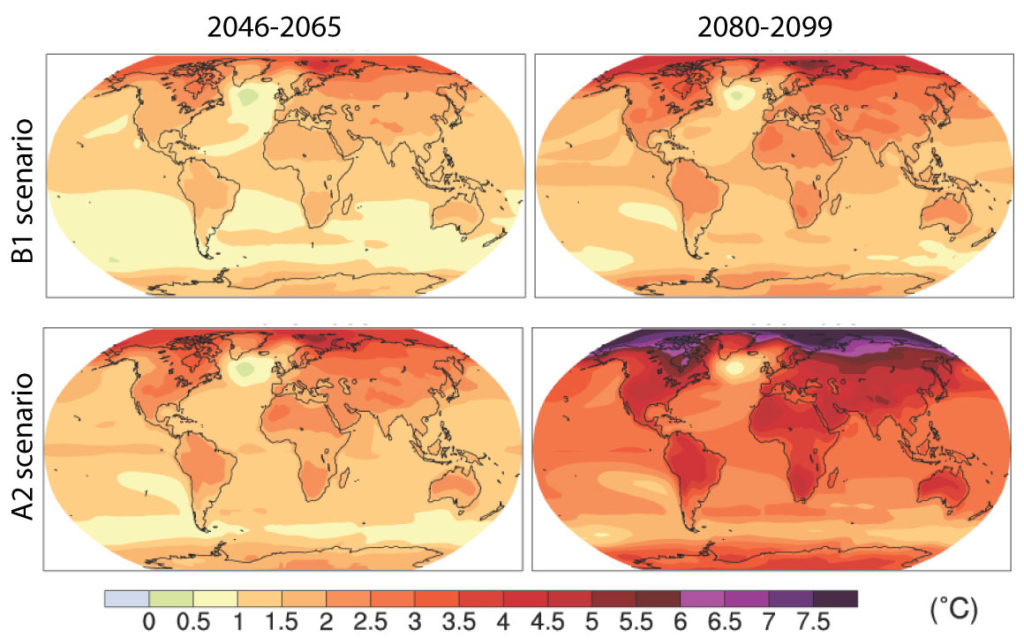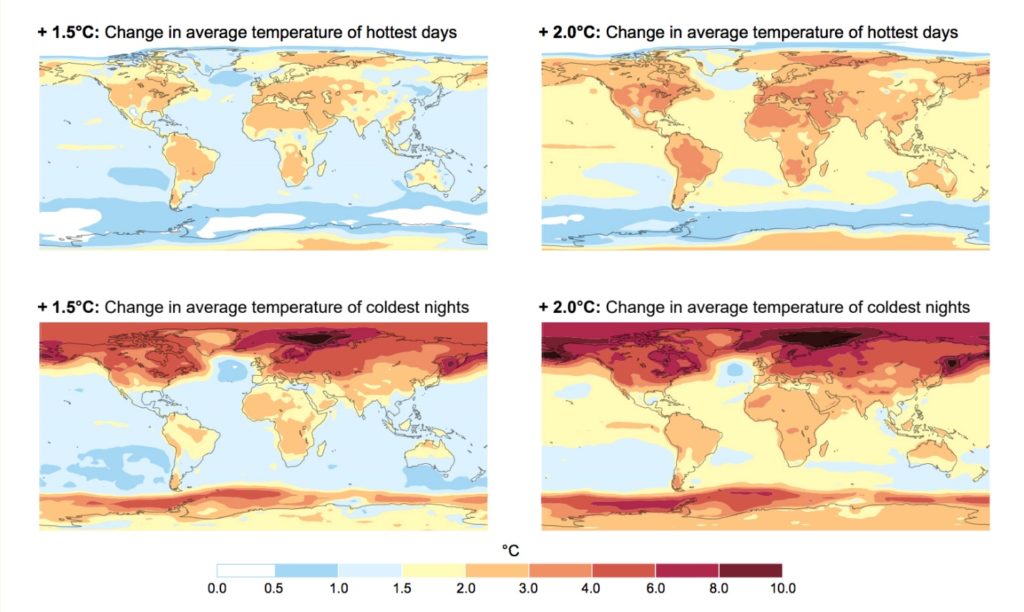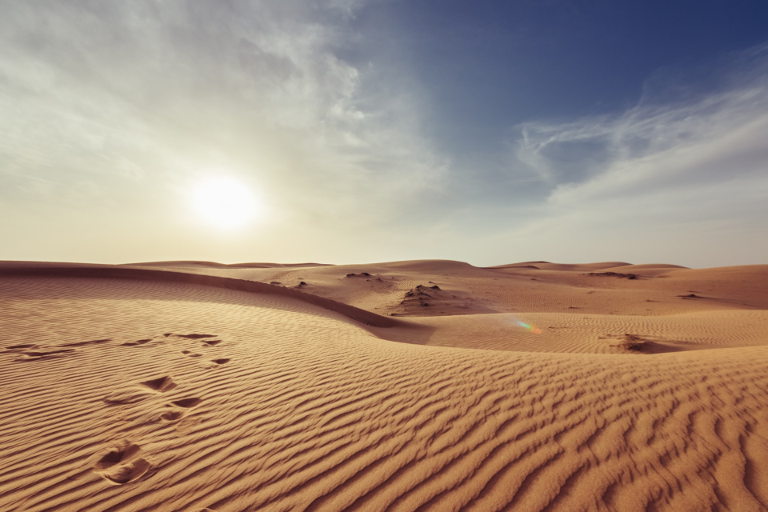First, for Americans, a 4.0oC temperature increase corresponds to a 7.2oF temperature increase. Maybe that still doesn’t sound too bad but it’s a big problem because the 7.2oF increase is an average over the globe and the temperature increase will not be homogeneous.
Some places will warm more than 7.2oF and some places less than 7.2oF. The regions that will warm substantially more than 7.2oF include high latitude regions and large landmasses. We can see that happening already with the global temperature change over the last 50 years (See Figure 1):

Figure 1: Global Temperature Change from 1951-1980 to 2011-2020 (From NASA)
Figures II and III are projections of future warming across the globe:

Figure II: Average annual air temperature change (°C) at the Earth surface for two scenarios of future climate relative to the average of temperature between 1980 to 1999

Figure III-Warming during days and nights (Maps from NASA)
Not only will temperatures be higher in the future, but precipitation patterns will change over time, illustrated by predictions from the U.S. National Center for Atmospheric Research shown in Figure IV:

Figure IV-Predictions of future precipitation changes from the National Center for Atmospheric Research
Hotter and drier conditions will make growing food more challenging. As it is now, a substantial amount of agricultural production in the U.S., as well as in other countries, takes place in regions that rely on irrigation, particularly in the southwestern U.S. and the Great Plains. The water for irrigation comes from both surface water and aquifer sources.
…click on the above link to read the rest of the article…
